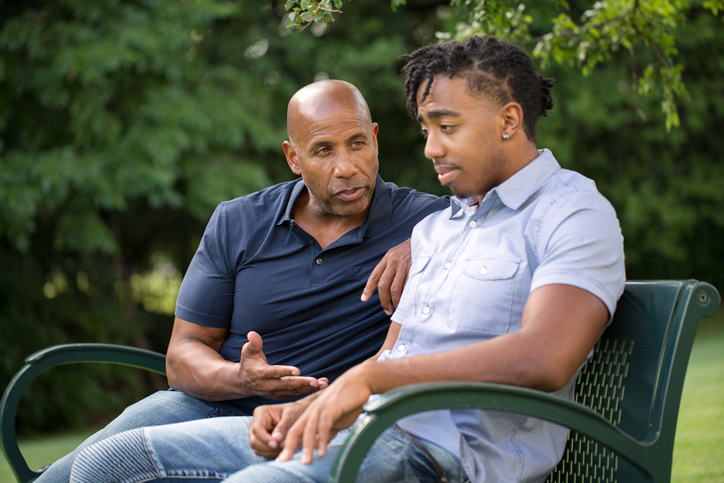LGBTQIA2S+ youth need to feel safe and supported in their schools, homes, and communities. This means creating environments where they are not discriminated against or harassed because of their sexual orientation or gender identity.
teens / youth
A Letter to LGBTQIA2S+ Kids, Youth from Social Workers
We honor the richness of your authenticity and openly proclaim that you are perfect exactly as you are.
Ask a Social Worker: My son is threatening suicide
My son dropped out of college and is threatening to commit suicide. We called a hotline and they suggested family therapy. But my partner, his father, doesn’t believe him.
What College Students Don’t Tell Their Parents
Parents do not always know when their college students are suffering. Stress, anxiety, sleep difficulties and depression are among the leading factors that wreak havoc on academic performance.
Talking to Teens About Sex: Q&A
By Brenda C. Wade, MSW, LCSW Amy Schalet is Assistant Professor of Sociology at the University of Massachusetts Amherst and a specialist on adolescent sexuality and culture in comparative perspective. Her book, Not Under My Roof: Parents, Teens, and the Culture of Sex...
Practical Tips for Raising Responsible Teens
By Brenda C. Wade, MSW, LCSW Introduction Anyone parenting a teen knows just how challenging this all-important job can be. Here are tips that can make that job easiser. One Establish open communication with your teen. Let them know that you are always...
Understanding Teen Cliques
By Bette J. Freedson, LCSW, LICSW Introduction A Sense of Belonging Conclusion Introduction Adolescents intuitively gravitate to cliques. Cliques are developmentally in sync with the tasks of adolescence. When these groups of tightly connected kids and young adults...
Adolescent Cancer Survivors and Substance Abuse Risk
By Barbara Jones, PhD, Jessica Parker-Raley, MA, and Elizabeth C. Pomeroy, PhD, LCSW Introduction Adolescent Cancer Survivors Face Physical and Psychological Challenges Adolescent Cancer Suvivors and Substance Use Research Findings Implications for Social...
Cómo ayudan los trabajadores sociales a los adolescentes conflictivos
By Frederic Reamer, PhD and Deborah Siegel, PhD, LISCSW La adolescencia resulta un período muy difícil para ciertos jóvenes y su familia. Si bien la adolescencia puede ser una etapa emocionalmente intensa y tormentosa para prácticamente todos los jóvenes, en ocasiones...
3 Questions: Troubled Teens
By Ryan Piester, MSW Introduction Mr. Ryan Piester earned his Masters of Social Work degree from Marywood University in 2008. Since graduating he has been employed as a Therapist and Behavioral Specialist Consultant. Also, Mr. Piester has four years of...
Find a Social Worker
Recent Articles

Are You Grieving After Losing a Loved One to Suicide?
The death of a loved one is difficult; losing someone to suicide can be especially challenging. If you are a survivor of suicide loss, you may be experiencing a range of emotions, including shock, disbelief, anger, guilt, and sadness. You may also have difficulty...

Are You Worried About Your Child’s Mental Health?
The mental health of children in the United States is declining, and many parents are worried and unsure of how to help their children. They might see their child struggling with anxiety, depression, or other mental health challenges, and they don't know what to do....

5 Ways to Support LGBTQIA2S Youth
According to a study by the Trevor Project, LGBTQIA2S+ youth are more likely to experience depression, anxiety, and suicidal thoughts than their cisgender and heterosexual peers. They are also more likely to drop out of school, experience homelessness, and be victims...





